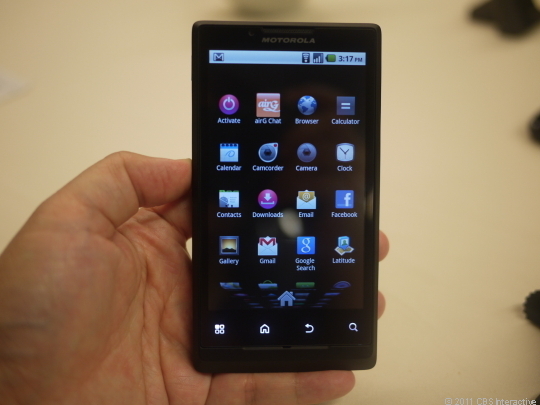Sprint steps up prepaid game: Android fuels commodity devices

What happens to prepaid growth---and contract declines---when devices connected to inexpensive plans become competitive with their pricier cousins?
We're closer to answering that question today than we were just last week.
Sprint and its Virgin Mobile unit on Thursday debuted the Triumph, an Android 2.2 device that doesn't look like a cheapo phone. Rachel King summed up the primary issue in her quick impressions of the Triumph:
The Triumph was the real treat if there was one today. If I walked into a Sprint store and saw this handheld without a “prepaid” label stamped onto the product sheet, I would assume it’s a full-fledged, regular contracted smartphone. And in a way, it really is just a regular 3G smartphone. Motorola (and Sprint via its Virgin Mobile brand) are developing a bridge between subsidized and prepaid smartphones by bringing some decent options to the bottom category.
In many respects, the Virgin Mobile Triumph outshined the pricier Sprint Photon 4G. Amazing what a $25 a month Web, messaging and talk plan can do. The Triumph isn't the first Android prepaid device around. Virgin Mobile has a few, Cricket features a $329 Samsung Indulge and MetroPC has a $299 Indulge and a handful of other Android phones.

- Prepaid services will represent growth to the wireless industry. The wireless market has become saturated and the prepaid market brings more consumers under the tent to eventually be migrated to higher priced plans.
- A working class iPhone may make the prepaid market much more exciting to consumers.
- People don't have the money to continue to boost average revenue per user at wireless carriers and value plans will dominate. Bernstein analyst Craig Moffett has highlighted the serious disconnect between carriers' plan to squeeze more revenue out of customers and the consumers' ability to pay.
Take those three factors and combine them with a mobile operating system---Android---that can power high-end and low-end devices and carriers may have to move down market in a hurry to keep their subscriber growth.
Also: